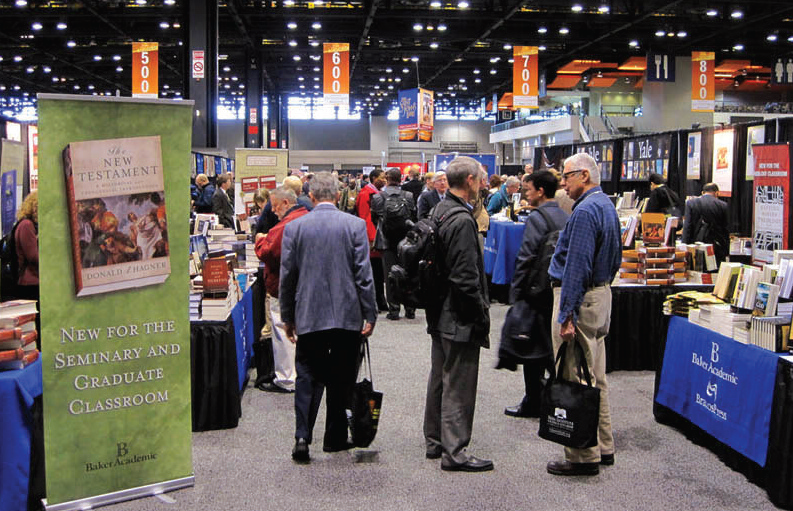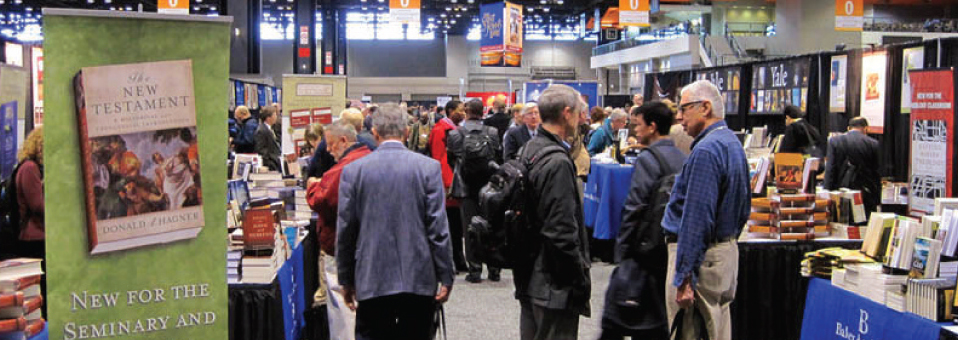Professors attend American Academy of Religion conference

Three MC professors attended the 2012 AAR/SBL meeting in Chicago last month to see scholars present their work.
On Nov. 17, over 1,200 scholars of religious studies met for the American Academy of Religion’s annual conference in Chicago, Ill. The largest meeting for the AAR to date saw three Maryville College professors in attendance. Dr. Brian Pennington, professor of religion and Chair of the Humanities Division; Dr. Andrew Irvine, associate professor of philosophy and religion; and Dr. Phillip Sherman, associate professor of religion all attended the conference and had much to say about the many issues that circulated during the four-day meeting. Pennington, who is on the board of directors for the AAR and has been a member of the academy for 18 years explained the usefulness of the conference.
“These big academic conferences are opportunities for people to do a number of things,” Pennington said. “First, to network and make collaborations with new colleagues, as well as to see old colleagues from graduate school –they have a kind of reunion quality to them. They are also opportunities for scholars to hear what new work is being done in the field…and to see who are the new students finishing their PhD’s. It’s also useful for people to expand their research interests to things they didn’t learn in graduate school.”
The AAR is the largest organization of religious scholars in the world, and the conference is held conjointly with the Society of Biblical Literature, making it the premiere scholarly conference for religion in the world. There are almost 140 individual programming units that focus on specific areas such as “Religions of South Asia,” “Philosophy of Religion.” “Queer Studies of Religion” and various other groups consisting of a broad range of interesting possibilities. The sessions consist of five or more papers or panelists who present their work and discuss what their research has consisted of on a particular topic, leading to important Q&A sessions with the scholars in attendance.
Of the three MC professors who attended the conference, Pennington was the only one to present at this year’s event. His paper was presented as part of a book panel on the book “Being Different” by the selfproclaimed “public-intellectual” Rajiv Malhotra. Pennington described Malhotra as the spearhead of a movement of American Hindus who have appointed themselves as “watchdogs” of scholarly Western religion’s portrayal of Hinduism. Essentially, Malhotra seeks to attack Western scholars for being focused on the diverse aspects of Hinduism and the nation of India, often resorting to personal attacks and blanket-statement critiques of scholarly methods and Western civilization.
“I oppose (Malhotra’s) movement vigorously, and I regard these people as real threats to academic freedom both in the U.S. and India,” Pennington said. As a board member, Pennington carried various responsibilities related to the planning and organizing of the event as well, which was especially important due to the issues with hotel and conference site location that arose at this year’s conference.
The conference was originally slated to be held in Chicago’s Hyatt Conference Center, but shortly prior to the meeting, labor issues concerning the ethical nature of Hyatt’s treatment of their workers were called into question. As a conference of religious scholars, many did not want to be associated with a business that was maintaining possibly questionable ethical practices, but since the issues were not raised until shortly before the conference, the AAR was put in a bind. Ultimately, the board decided to move all conference events away from the Hyatt conference center, while keeping the reservations at the hotel for those members who had scheduled well in advance and chose to room there.
Both Irvine and Sherman agreed that Pennington and the other board members handled the issue professionally and ethically, mentioning that their actions eradicated much of the distractions of the issue from the conference. Irvine, who has been an AAR member for over 15 years, felt that this conference was especially interesting and useful for expanding both his research interests and teaching styles. He specifically cited a session on the sexualized violence that occurs in lynching and the crucifixion that he hopes help incorporate into his New Testament courses.
Irvine is also very supportive of Dr. Pennington’s position in the AAR.“It’s a big thing for Dr. Pennington to be on the board of directors,” Irvine said. “It’s something that we can celebrate having one of our professors recognized by his professional peers in that way. That’s pretty neat.” Irvine also pointed out that he would like to get more MC students involved in the AAR meeting as a platform to explore potential research and career interests. He pointed out that it would be a great opportunity for a student interested in religion to gain better understanding of the scholarly profession. Sherman, who is a member of the Society of Biblical Literature and worked for the SBL during his graduate school career, attended many sessions on pedagogy, which is study focused on the method of teaching biblical studies, specifically in the undergraduate realm.
Sherman found that biblical studies are increasingly focusing on being in dialogue with the other disciplines of the humanities, which he felt was a useful and exciting shift in the field, specifically in relation to the liberal arts. “What it’s going to look like to be a Biblical scholar 15 years from now, I think will be really different than what it’s been for much of the twentieth century,” Sherman said. “It’s really been more circumscribed – a small group of people talking the same language to each other – but we need to be much more open to the things that are happening on other parts of campus and be in open dialogue with them.”
Sherman also seconded Irvine’s push to get more students involved with the conference, specifically with the regional conference, which both professors felt would provide a fantastic platform for some of their brightest students to present some of their own academic research. “To be able to bring some of our best students to a meeting like this to let them see sort of the bigger picture of where we fit as scholars, would be a really nice opportunity,” Sherman said.

